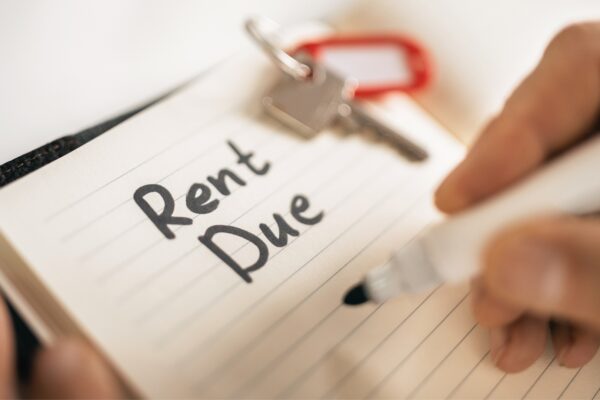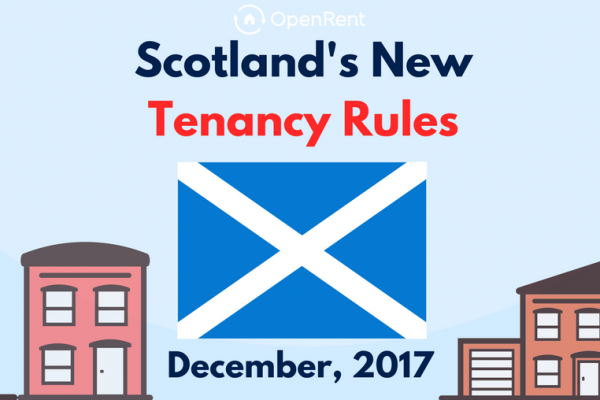Landlords should be aware of five key dates in 2021. The year has big changes in store to the way landlords pay tax, evict tenants and pass safety criteria.
Let’s jump straight into the key dates and new rules for landlords in 2021.
1. Stamp Duty Land Tax (SDLT) Holiday Ends
In England, the temporary reduced rate of SDLT will come to an end on 31st March 2021. In July 2020, the property value threshold above which the Residential Rates of SDLT are paid on properties in England and Northern Ireland was temporarily raised to £500,000. This means many house buyers paid no tax at all.
Those buying additional properties (e.g. second homes and buy-to-let properties) still have to pay the 3% additional rate, however.
The temporary changes end on 31st March, when the Residential Rates threshold will go down to £125,000, meaning tax will need to be paid on the value of the property above this amount.
A reduction in SDLT usually makes buying properties more attractive to investors and landlords, since it means they pay less tax. This can have an effect of increasing demand during the tax relief period, inflating house prices for as long as the policy lasts.
This effect may end when the holiday ends, causing market activity and house prices to drop. Landlords ought to be aware of the effect this could have on their plans to buy or sell.
Similar measures have been announced in Scotland and Wales.
2. Electrical Safety Checks Become Mandatory
Landlords are required to have an EICR performed for all their properties in England by 1st April 2021. Landlords must then serve the tenants a copy of the report within 28 days. If necessary remedial work is identified in the report, then it must be performed.
This applies for ongoing tenancies, not just new tenancies, so all landlords must comply. If you have not ordered an EICR yet, you can order one via OpenRent here.
Order your mandatory EICR now.
Order EICR3. Eviction Ban Ends in England
A ban on bailiffs enforcing evictions in all areas of England is due to end on 21st February. Eviction notices from courts to tenants require 14 days’ notice, and therefore 8th March is now the earliest that an eviction can legally be undertaken, except in extreme circumstances such as domestic abuse or arrears of over 6 months’ rent.
4. Eviction Notice Periods Revert to Two Months
When March ends, so too will end the temporary requirement for landlords to give tenants in England six months’ notice before commencing eviction proceedings. This is three times the usual two months’ notice for monthly tenancies.
Several groups, including Citizens Advice, have called on the eviction measures to be extended. The UK Government has pledged to end ‘no fault’ evictions and the end of the coronavirus measures on the 31st March could prompt the Government to review this manifesto pledge.
5. Furlough Scheme Ends
The Government’s Coronavirus Job Retention Scheme, also known as the furlough scheme, is due to wrap up at the end of April. The scheme has allowed employers to furlough employees, with the state paying 80% of their usual remuneration up to a maximum of £2,500 per month.
This is an important date for landlords whose tenants have been affected by coronavirus. If tenants currently being supported by the furlough scheme are not kept on by their employers when the scheme ends, then their income may cease on 31st March, meaning they may have difficulty paying their rent from this date.
Landlords are advised to be in touch with tenants far ahead of time to find out if their tenants will be affected and agree suitable arrangements if needed.
Expected but Unconfirmed
A further set of changes have a good chance of coming into play in 2021, but have not yet been confirmed.
Capital Gains Tax rise
It is expected that the rate of Capital Gains Tax, paid on the increase in the value of properties at sale, will increase in 2021. The Office for Tax Simplification in late 2020 suggested that CGT should fall into line with income tax. Income is taxed at 20% for basic rate and 40% for higher rate payers.
Currently, CGT on property is at 18% for basic rate taxpayers and 28% for higher rate payers. The tax must be paid within 30 days of the completion of the sale. For the higher rate payers, an increase to 40% would be a significant increase in the amount of tax paid when selling buy-to-let properties.
End of Section 21 evictions in England
In the 2019 General Election, the Conservative Party pledged to end no-fault evictions, as Section 21 evictions are commonly called. Landlords need no grounds to initiate this process, meaning tenants who pay their rent on time and adhere to their contract can still be evicted with two months’ notice.
The end of the protections tenants have been given during the coronavirus crisis may be a natural time for the Conservative government to act on its election pledge.
Plans to increase the minimum EPC grade to ‘C’
The minimum energy efficiency certificate (MEES) that properties need to achieve in order to be legally let is currently grade ‘E’. But the Department for Business Energy and Industrial Strategy (BEIS) is consulting on increasing this to a ‘C’. A confirmation of this plan is expected this year, with the new rules mooted to come into force in 2025 or after.
The commitment of the Government to this plan may be hinted by the Green Homes Grant. The scheme allows homeowners, including landlords, up to £5,000 in vouchers to perform energy efficiency improvements on their property. The scheme will run until 31st March 2022. Millions of landlords will need to make improvements in order to achieve a C grade.
Summary
- Eviction ban ends 21st February 2021 (last minute extension is possible)
- Stamp Duty holiday ends 31st March 2021
- Furlough scheme ends 31st March 2021
- Eviction notice periods revert to two months from 31st March 2021
- EICRs become mandatory for all rented properties from 1st April 2021
- Landlords should also be aware:
- Capital Gains Tax may increase in 2021
- Section 21 ‘no fault’ evictions may be scrapped in 2021
- Plans to increase the MEES from ‘E’ to ‘C’ may be announced in 2021, but not take effect for several years




Regarding point 2, the EICRs coming into effect, does anybody know whether there will be an extension if remedials are required as everybody is at home. I have had my reports done early but a few have come back needing some serious investigations which would require the electricity supply being off for substantial periods.
With tenants working from home and or because of lockdown, is it acceptable for the remedials not to be carried out. My electrician has informed me that it would be best for the properties to be empty.
I could, one supposes, put them in a hotel, but it would not be for key workers and what about pets etc…
I can’t find anything on the Housing Minister’s webpages on gov.uk as nothing really has been mentioned since May 2020.
I have submitted a contact form but thought I might get a quicker answer on here.
The legislation is clear about the timescale by when remedial action must be taken after the report is produced, which is 28 days. The local authority could theoretically start proceedings against you for not complying, but there are multiple stages to this and you would have the opportunity to plead mitigation. Having said that, if the installation is currently unsafe then there is no alternative but to get it done now.